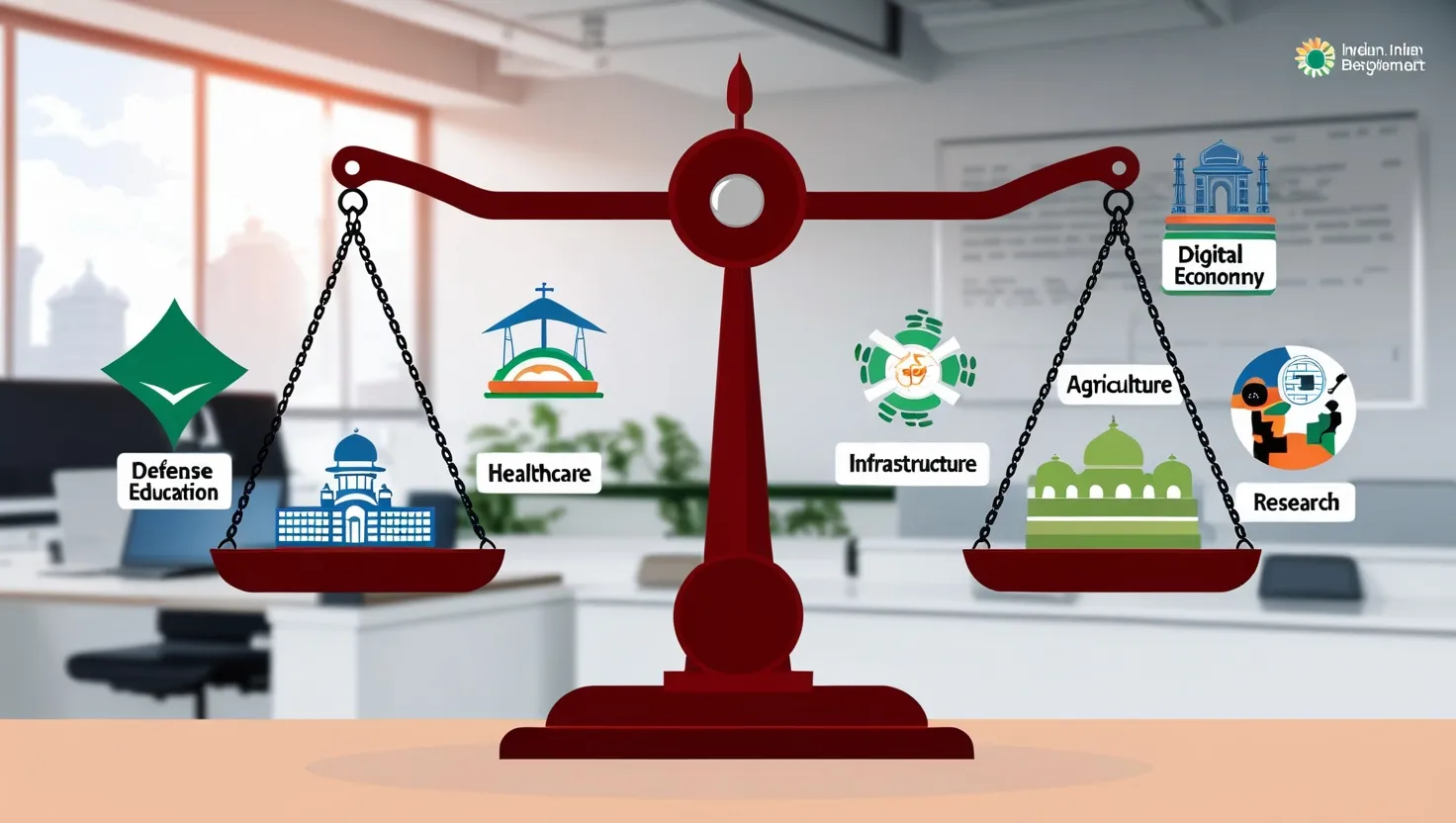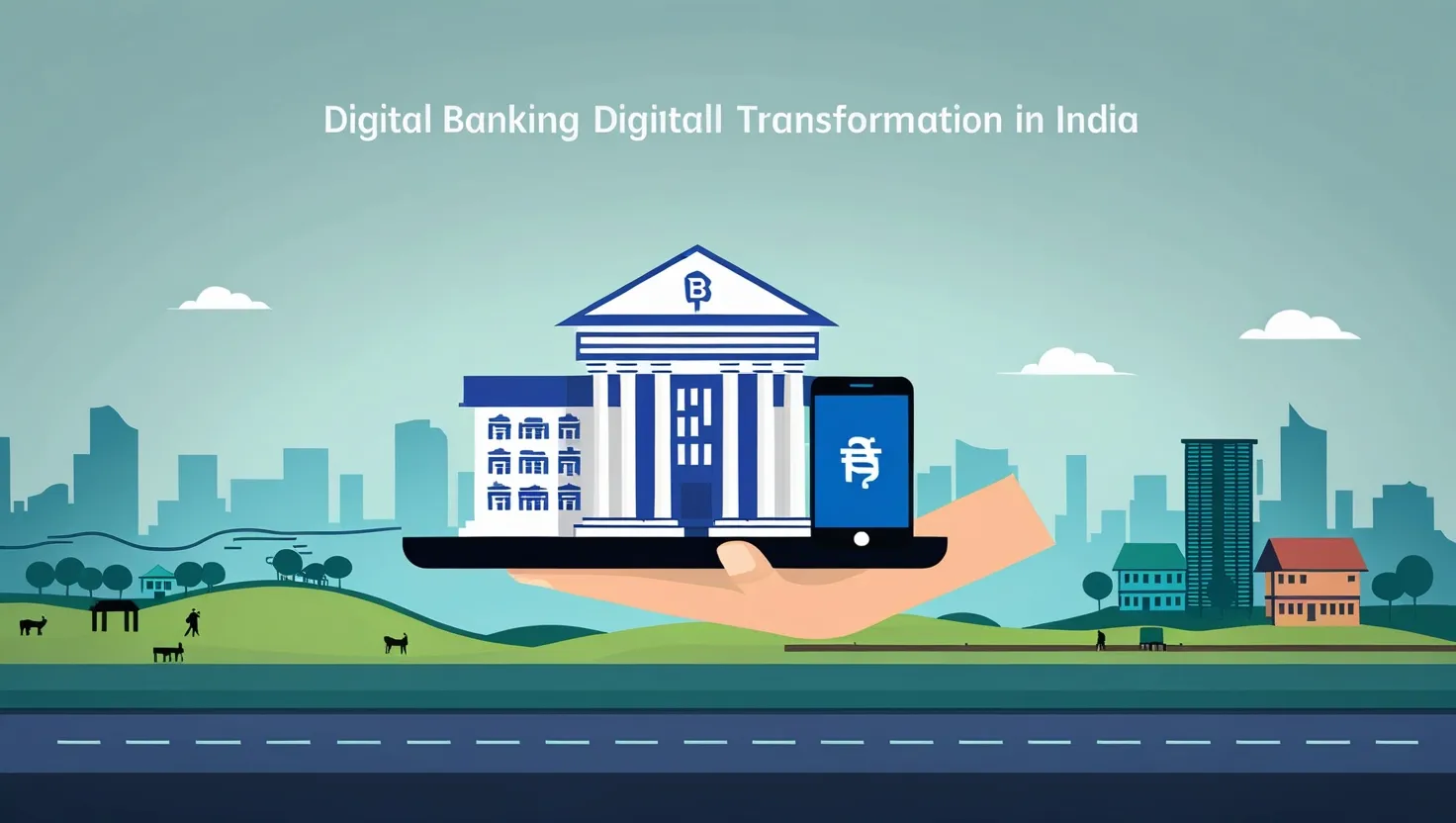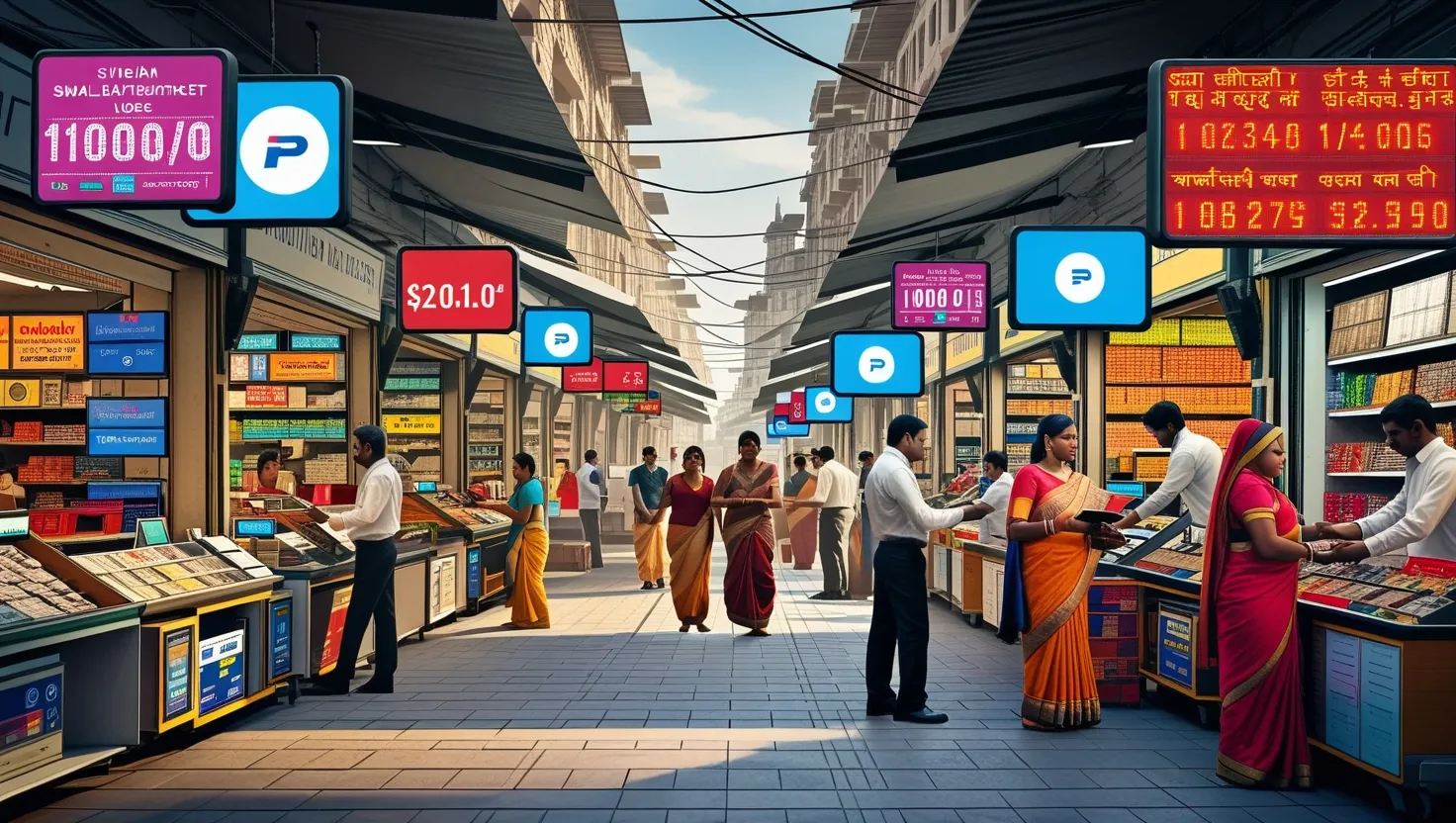India's Water Revolution: New Policies Reshaping Resource Management
Discover how India is revolutionizing water management through river interlinking, groundwater regulation, and participatory governance. Learn about innovative solutions balancing today's needs with future sustainability. Join the conversation on water stewardship. #WaterPolicy

Budget Blueprint: How India's Financial Allocations Shape National Priorities
Dive into India's budget priorities: Discover how defense, healthcare, education, and digital investments shape the nation's future. See the real impact of fiscal decisions on development and equality. Learn what's at stake for 1.3 billion Indians. #EconomicPolicy

India's Banking Revolution: 5 Key Reforms Reshaping the Financial Landscape
Discover how five critical reforms are reshaping India's banking sector. Learn about bank consolidation, NPAs, digital banking, deposit insurance, and regulatory changes driving a more efficient, stable, and inclusive financial system. #IndianBanking

Federal-State Financial Dynamics: 6 Key Shifts Transforming India's Economy
Discover how changes in India's federal-state financial relations are transforming the economy. Explore GST impacts, Finance Commission reforms, borrowing provisions, and state autonomy trends. Learn what this means for India's economic future.

Supreme Court Verdicts Reshaping India's Governance: 7 Landmark Rulings Transforming Policy
Explore how landmark Supreme Court rulings are reshaping India's governance landscape. From electoral transparency to federalism, discover the implications of judicial activism on policy, democratic processes, and citizen rights. Join the conversation.

5 SEBI Regulations Transforming India's Asset Management Industry in 2024
Discover how SEBI's latest regulatory changes are transforming India's asset management industry. Learn about reduced fund costs, enhanced risk management, and new investment opportunities. Find out what it means for investors. #Investment #SEBI

How India's Healthcare Revolution is Transforming Medical Services: 5 Key Initiatives
Discover how India's healthcare system is transforming through innovative initiatives. From digital health IDs to AI-powered disease surveillance, learn about 5 key programs reshaping medical care for 1.4 billion people. #HealthcareIndia

India's Insurance Sector: 5 Key Reforms Reshaping the Market in 2024
Discover how regulatory reforms are transforming India's insurance sector. Learn about surety bonds, composite licensing, and tech innovations reshaping the industry. Stay informed about changes affecting your insurance choices. #Insurance #India

MSME Reforms in India: 6 Key Changes Transforming Small Business Growth in 2024
Discover how India's MSME reforms are transforming small businesses through credit schemes, digital platforms, and simplified registration. Learn how these changes impact entrepreneurs and drive economic growth. #MSME #India

India's Anti-Money Laundering Framework: A Complete Guide to RBI Regulations and Compliance (2024)
Discover India's comprehensive anti-money laundering framework and its impact on financial security. Learn about risk assessment, KYC procedures, and regulatory compliance measures protecting the banking system. #AML #Banking

5 Urban Reforms Transforming Indian Cities: A 2024 Analysis of Digital Growth
Discover how 5 groundbreaking reforms are transforming Indian cities through digital tax systems, streamlined permits, municipal bonds, waste management & citizen engagement. Learn what's working and what's next. 🏙️ #UrbanIndia

Electoral Reforms in India: VVPAT, Digital Voting, and Campaign Finance Changes (2024)
Explore key electoral reforms reshaping Indian democracy: VVPAT machines, One Nation One Election, electoral bonds, digital voter services, and campaign spending limits. Learn how these changes impact voting and governance.

6 Game-Changing Fintech Regulations Reshaping India's Financial Future by 2025
Discover India's evolving fintech landscape: 6 key regulatory changes shaping the future of digital finance through 2025. Learn how new frameworks impact lending, payments & data sharing. Read expert insights.
